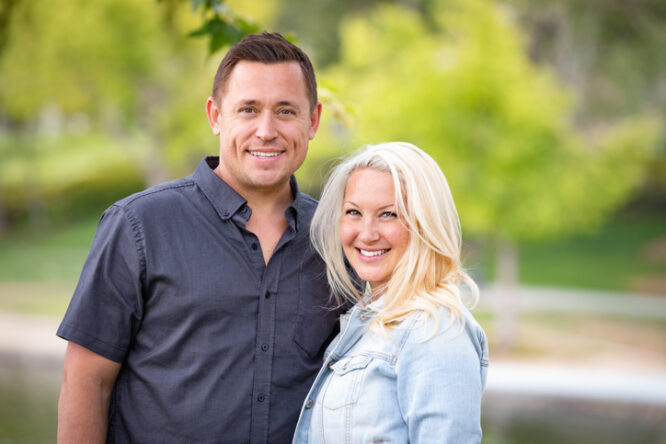Healthy relationships don’t just magically happen—they’re built on small, thoughtful habits that anyone can learn.

You’ll always go through ups and downs—that’s just life—but if you have a solid foundation and are both dedicated to staying on the right track, you’ll be just fine. If you’re ready to create a stronger connection that can weather any storm and brings you happiness long-term, these are things you can start doing right now—no need to wait.
1. They speak up when something bothers them—without turning it into a fight.
 Source: Unsplash
Source: Unsplash Instead of bottling things up or dropping passive-aggressive hints, they just say what’s on their mind. It’s not always polished, but it’s honest, and that saves a lot of guesswork later on. You don’t need a perfect script. Just saying, “Hey, can we talk about something that’s been bugging me?” is enough to keep resentment from building up quietly in the background.
2. They actually listen—like, properly listen.

It’s not the kind of listening where you’re just waiting for your turn to talk. People in healthy relationships really absorb what the other person’s saying, even if it’s not easy to hear. Try slowing down when your partner talks. Let their words land before jumping in with your take. Feeling heard can be just as powerful as feeling loved.
3. They say “thank you” for the little stuff.

It’s easy to take each other for granted, especially in long-term relationships. However, couples who keep saying thanks—for doing the dishes, remembering something small, or just being there—tend to last longer and feel closer. Gratitude doesn’t need to be dramatic. A quick “I really appreciate that” goes a long way in making both people feel valued.
4. They make time for check-ins, even when nothing’s “wrong.”

Healthy couples don’t wait for problems to talk about their relationship. They check in regularly—How are we feeling? Is anything feeling off? What’s working really well right now? It’s like relationship maintenance. You wouldn’t wait for your car to break down to get a service, and the same idea applies here—small tune-ups prevent bigger breakdowns.
5. They let each other have space.

They don’t panic if one of them needs a day alone or wants to hang out with friends solo. In fact, they encourage it. Space isn’t a threat—it’s part of staying emotionally healthy. You don’t have to be glued together to prove you care. Trust grows when both people feel like they can breathe without needing to explain or apologise for it.
6. They own up when they mess up.

Instead of going straight to defensiveness or trying to spin the blame, they just admit it. “I didn’t handle that well,” or “I’m sorry I snapped.” That’s what accountability looks like. You don’t have to be perfect—no one is. It’s about being mature enough to say, “Yeah, that was on me,” and then doing better next time.
7. They don’t try to “fix” every feeling.

When one person’s upset, the other doesn’t always jump into solution mode. Sometimes they just sit with them in it. “That sounds really hard. I’m here.” That’s it. No magic fixes. Offering presence over advice can be way more comforting. It’s a quiet way of saying, “You don’t have to go through this alone.”
8. They laugh—a lot, and at silly things.

It’s not always about candlelit dinners and deep chats. The happiest couples often laugh about ridiculous inside jokes, awkward moments, or even their own arguments once they’ve cooled down. Laughter keeps things light when life gets heavy. If you can still be silly together, chances are, you’re doing something right.
9. They check their tone, not just their words.

Sometimes it’s not what you say—it’s how you say it. People in solid relationships are more aware of when their tone sounds sharp or dismissive, even if their words are technically fine. Just being a little more conscious of how you deliver things can stop so many unnecessary arguments before they even start.
10. They admit when they’re overwhelmed instead of lashing out.

Instead of taking stress out on each other, they name it. “I’ve had a rough day and I feel on edge,” is a lot easier to handle than snapping or shutting down. Being upfront about your emotional bandwidth builds trust. It tells your partner, “This isn’t about you. I just need a bit of grace right now.”
11. They support each other’s goals, even if they don’t totally get them.

They cheer each other on, not because they care about every detail of the dream, but because they care about the person chasing it. Your win is their win, even if it’s not their thing. You don’t need to fully understand someone’s passion to root for it. Just being curious and encouraging goes a long way in helping them feel supported.
12. They talk about money without freaking out.

Even if finances are tight or complicated, they make space for the conversation instead of avoiding it. They don’t wait for a crisis to get real about spending, saving, or what feels fair. Money talks aren’t romantic, but they are part of real love. The more honest you are about it, the less it turns into a fight later.
13. They show love in each other’s language, not just their own.

They learn what makes their partner feel loved, even if it’s not what comes naturally to them. Maybe one of them needs words, while the other responds to actions or time. Love doesn’t land the same way for everyone. Making the effort to speak your partner’s language shows a deeper kind of care.
14. They give compliments without holding back.

They don’t save nice words for special occasions. If one of them looks good, did something thoughtful, or just seems like they’re trying hard, they say so, freely and often. It keeps the appreciation flowing. You never know when a small compliment is exactly what the other person needs to hear that day.
15. They work as a team, not as opponents.

When there’s a problem, they don’t automatically take sides—they go into “us versus the issue” mode. That change makes all the difference in how they handle life’s chaos. Even during disagreements, they try to remember they’re on the same side. That mindset can take the heat out of most arguments before they spiral.




